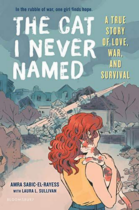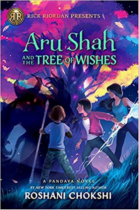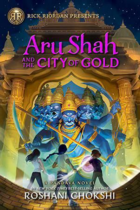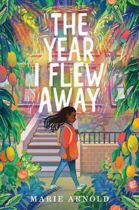Alan and Betram are next-door neighbors. They are also best friends. They are also very, very different to one another. Bertram is extremely neat, and Alan is wildly messy. When Bertram gets a cat, called Pierre, he is dismayed to find that Pierre prefers it at Alan’s house.
Author: Book Importer
The Cat I Never Named:a true story of love, war, and survival

In 1992, Amra was a teen in Bihac, Bosnia, when her best friend said they couldn’t speak anymore. Her friend didn’t say why, but Amra knew the reason: Amra was Muslim. It was the first sign her world was changing. Then Muslim refugees from other Bosnian cities started arriving, fleeing Serbian persecution. When the tanks rolled into Bihac, bringing her own city under seige, Amra’s happy life in her peaceful city vanished.
The Duck Who Didn’t Like Water
Duck is not like other ducks. Duck doesn’t like water and is perfectly fine alone, thank you very much. But then, one dark and stormy night, an outgoing, water-loving, and very lost Frog turns up at Duck’s door. Can this odd couple find Frog’s home? And will they find friendship along the way?
Aru Shah And The Tree Of Wishes

War between the devas and the demons is imminent, and the Otherworld is on high alert. Fourteen-year-old Aru Shah and her friends are sent on a mission to rescue two “targets,” one of whom is about to utter a prophecy that could mean the difference between victory and defeat. Turns out the targets, a pair of twins, are the newest Pandava sisters, though the prophecy says that one sister is not true. When the Pandavas fail to prevent the prophecy from reaching the Sleeper’s ears, the heavenly attendants ask them to step aside. Aru believes that the only way to put the shine back on their brand is to find the Kalpavriksha, the wish-granting tree that came out of the Ocean of Milk when it was churned. If she can reach it before the Sleeper, perhaps she can turn everything around with one wish.
Aru Shah And The City Of Gold

Aru Shah and her sisters–including one who also claims to be the Sleeper’s daughter–must find their mentors Hanuman and Urvashi in Lanka, the city of gold, before war breaks out between the devas and asuras.
Johnny’s Pheasant
“Pull over, Grandma! Hurry!” Johnny says. Grandma does, and Johnny runs to show her what he spotted near the ditch: a sleeping pheasant. What Grandma sees is a small feathery hump. When Johnny wants to take it home, Grandma tries to tell him that the pheasant might have been hit by a car. But maybe she could use the feathers for her craftwork? So home with Grandma and Johnny the pheasant goes . . .
It’s hard to say who is most surprised by what happens next—Grandma, Johnny, or the pheasant. But no one will be more delighted than the reader at this lesson about patience and kindness and respect for nature, imparted by Grandma’s gentle humor, Johnny’s happy hooting, and all the quiet wisdom found in Cheryl Minnema’s stories of Native life and Julie Flett’s remarkably evocative and beautiful illustrations.
The Secret Cat
Lucy wants a pet more than anything, even though her mom always says no. But one night, Lucy hears a scratching sound from behind her wallpaper, and a ghostly cat named Silvring appears. Silvring takes Lucy on an adventure and introduces her to a world filled with secret pets just like hers. Not all the secret pets are as friendly as Silvring, though.
The Year I Flew Away

In this magical middle-grade novel, ten-year-old Gabrielle finds out that America isn’t the perfect place she imagined when she moves from Haiti to Brooklyn. With the help of a clever witch, Gabrielle becomes the perfect American — but will she lose herself in the process?
Ancestor Approved-Intertribal Stories For Kids
Native families from Nations across the continent gather at the Dance for Mother Earth Powwow in Ann Arbor, Michigan.
In a high school gym full of color and song, people dance, sell beadwork and books, and celebrate friendship and heritage. Young protagonists will meet relatives from faraway, mysterious strangers, and sometimes one another (plus one scrappy rez dog).
They are the heroes of their own stories.
Featuring stories and poems by:
Joseph Bruchac
Art Coulson
Christine Day
Eric Gansworth
Carole Lindstrom
Dawn Quigley
Rebecca Roanhorse
David A. Robertson
Andrea L. Rogers
Kim Rogers
Cynthia Leitich Smith
Monique Gray Smith
Traci Sorell,
Tim Tingle
Erika T. Wurth
Brian Young
Rock By Rock-The Fantastical Garden of Nek Chand
In the bustle of the busy streets of Chandigarh, India, Nek Chand saw something no one else did. Where others saw rocks and stones, Nek saw the boyhood village he missed so dearly. Where others saw broken plates and glass, Nek saw laughing men. And where others saw trash, Nek saw beauty.
Nek Chand’s incredible rock garden, built from stone and scraps and concrete, began as a way for him to express his long-felt grief at having to leave his boyhood village due to the violence caused by the partition of India. What began as a secret and personal (not to mention initially illegal) project became so much more, not only to Nek but to all of India.
